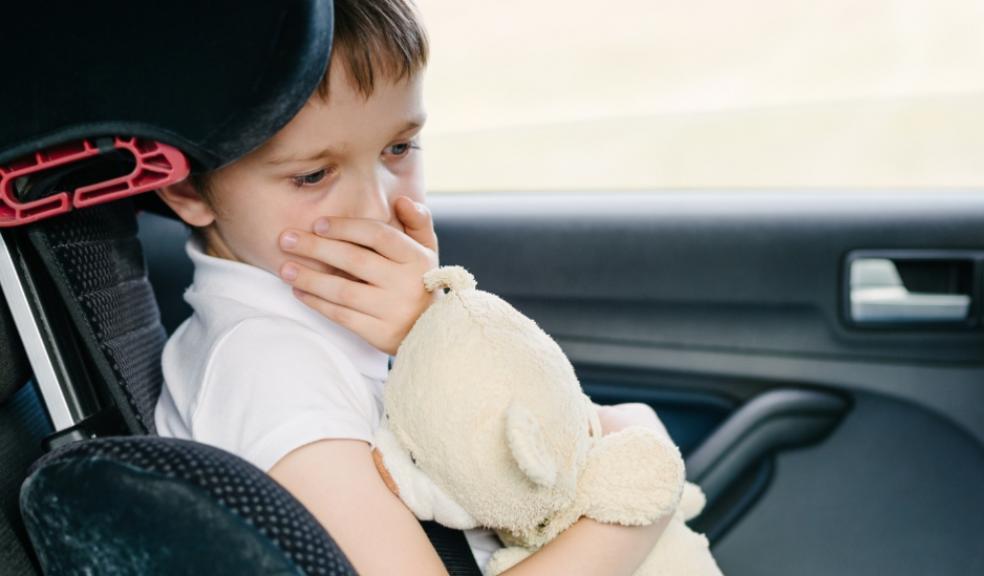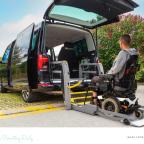
Health Expert Reveals Top Tips for Avoiding Travel Sickness
From long road trips in your used Ford to the work commute, travel sickness is a problem. With one in three people likely to experience motion sickness, knowing how to reduce its effects is necessary to enjoy your travels, especially among children.
Sam Sheehan, the motoring editor at cinch, the faff-free way to buy a car online, says: “Travel sickness isn’t fun. It can severely affect your enjoyment, not only of your journey but also the destination once you’re there, with lasting effects. From dizziness to nausea, no one wants to feel travel sick.”
The cost of travel sickness
Not having proper control of your car, even due to sickness, can have dangerous and expensive repercussions. You could face up to £1000 in fines if you’re found to not be in control while behind the wheel. So, if you’re feeling unwell or prone to travel sickness, having a remedy is a must.
If you’re feeling sick behind the wheel on a motorway, you could face extra fines. It is illegal to pull over onto the hard shoulder unless asked to do so by law enforcement or due to a breakdown. Pulling over to be sick could cost you up to £2,500 in fines.
Instead, if you’re feeling sick behind the wheel, leave at the next exit and find somewhere safe to park until you recover. You might need to ask a friend or loved one to drive your car for you if you’re too sick to drive, but make sure you have a fully comprehensive cover if you’re offering your car to someone else, or your insurance could become invalid in the case of a crash. Driving without insurance could result in a fine of up to £300 and 6 points on your license.
Sheehan says: “Not only is travel sickness physically uncomfortable, but it can be costly too. From dangerous driving to letting the wrong person drive your car, there’s a lot you need to account for if you’re unable to be behind the wheel safely.”
Top tips for travel sickness
Ditch the drive-thru
If you’re planning a long drive, starting it with a drive-thru meal might sound great but can cause you problems in the long run. Sitting in a car with a full stomach, especially with something that might not always agree with you, is a recipe for disaster.
Abbas Kanani, Superintendent Pharmacist at Chemist Click Online Pharmacy, offers advice on what to avoid if you suffer from travel sickness: “Eating a heavy meal before travelling can lead to increased gastric activity and digestion. This heightened activity can make your stomach more sensitive and prone to experiencing nausea or discomfort during travel. The combination of stomach movement from digestion and the motion of the vehicle can intensify feelings of sickness.
“Also, when your stomach is still processing a large meal while you're in motion, it can contribute to a sense of fullness, bloating, and discomfort. Instead, opt for light, easily digestible meals or snacks.”
Natural remedies
If you can’t resist your favourite road-trip food or simply feel a bit off before setting off, some natural remedies can help calm your stomach.
Abba says: “Ginger can be effective as a natural remedy for nausea and travel sickness. Scientific research has found that ginger and its compounds may increase digestive responsiveness and speed up stomach emptying, which may reduce nausea.
“It seems to aid digestion and saliva flow, and its anti-inflammatory properties also support the release of blood-pressure-regulating hormones to calm your body and reduce nausea. You can consume ginger in various forms, such as ginger tea, ginger candies, or even ginger capsules.”
If you don’t like the taste of ginger, capsules can be a great way to get the same benefit without the taste. Ginger candies, however, can be great for someone who wants a sweet treat to help them through the journey. Not only does sucking on a candy help distract you, but the sugar in it can help give you a little boost of energy.
Abba continues: “Peppermint contains compounds like menthol, which has a calming effect on the stomach muscles and can help reduce feelings of nausea and vomiting associated with travel sickness. You can try drinking peppermint tea or sucking on peppermint sweets to help relieve travel sickness symptoms.”
Travel sickness medication
For more extreme cases or if nothing is working, medication might be your best option. These can help either before you travel, if you regularly get travel sickness, or during the journey after you’re already starting to feel nauseous.
“Hyoscine hydrobromide, also known as Kwells or Joy-Rides, is most commonly recommended. It works by affecting the inner ear and the brain to control vomiting. It also relaxes the muscles in the walls of the stomach. It comes as patches that you stick to your skin and tablets that you suck, chew or swallow,” says Abba.
Avoid your devices
If you’re a passenger on a long trip, it is easy to want to be distracted. Whether you’re picking up a book or scrolling through social media, looking down can enhance the feeling of travel sickness.
Abba says: “Avoid reading or looking at screen, as these activities can worsen the symptoms. When you're in a moving vehicle, focusing your gaze on a distant point can help alleviate motion sickness symptoms.
“By focusing on a distant point, such as a horizon or a stable object in the distance, you provide your visual system with a stable reference point. This helps to synchronise the information received by your eyes and your vestibular system, reducing the sensory conflict. This helps your brain better understand the motion and reduces the likelihood of experiencing travel sickness symptoms.”
Treating travel sickness when you’re not prepared
Sometimes, you’re just not prepared for travel sickness. Whether you don’t usually get it or you’re with someone who hasn’t prepared, being stuck with motion sickness isn’t fun on a car journey. But there are ways of alleviating your symptoms, even in a pickle.
Abba says: “Deep breathing activates the body's relaxation response, triggering the parasympathetic nervous system. This response helps counteract the effects of stress and anxiety, which can worsen travel sickness symptoms. Deep breathing can help mitigate nausea, dizziness, and discomfort by inducing a state of calmness.
“Deep breathing involves taking slow, deliberate breaths that fully expand the lungs. This deep inhalation allows for a greater intake of oxygen, which can positively impact overall well-being. Sufficient oxygenation can help regulate various bodily functions, reducing the likelihood of experiencing travel sickness symptoms.”
Whether going on a journey during the half term or a staycation with a road trip, you don’t want travel sickness ruining your time. Knowing quick, effective ways of treating it can help you and even your kids enjoy the journey, not just the destination.














